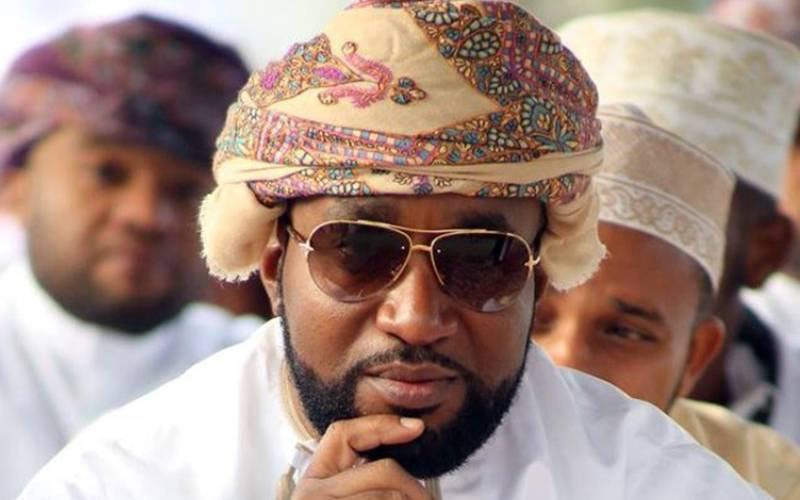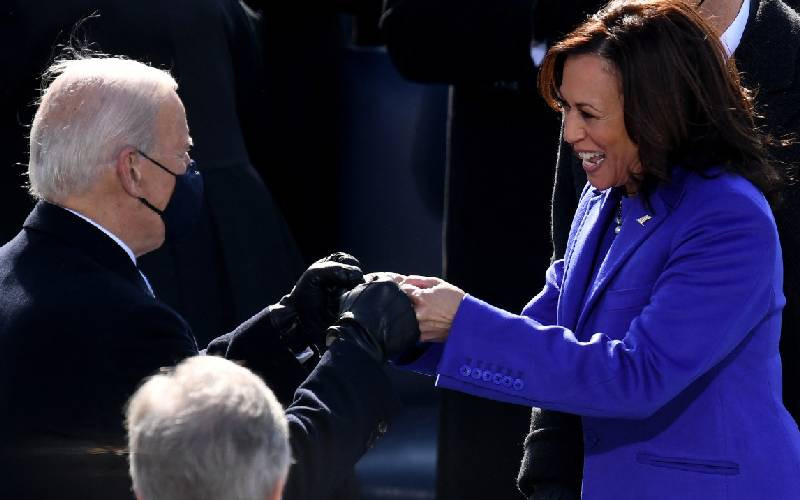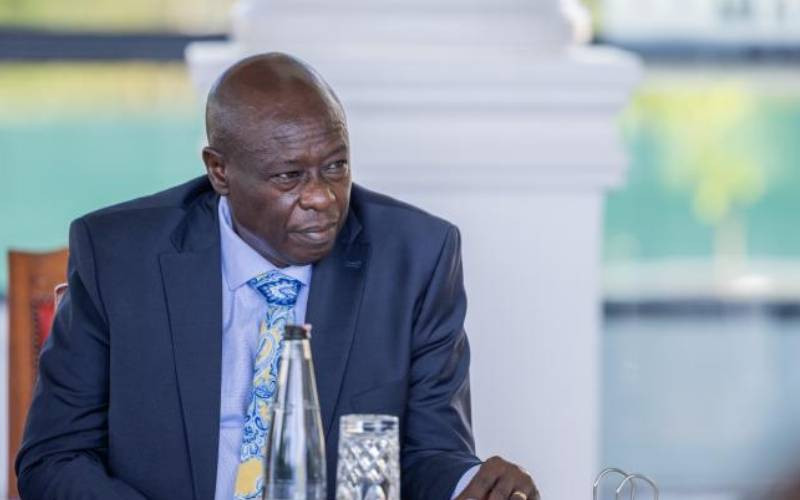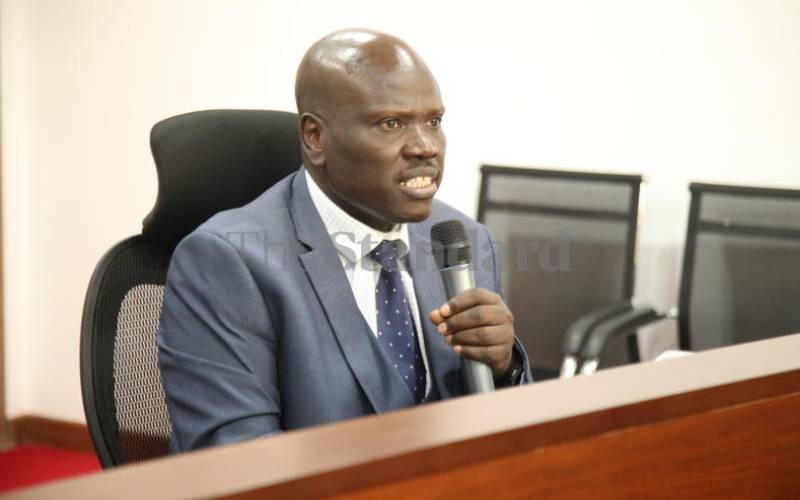By Barrack Muluka
Abuse of power is never too far. And you can tell the mindset of an abuser of power from the manner they adopt to seek power. The question remains, must we get power by all means?
Dr Martin Luther King Junior was in the habit of reminding his congregation in church and audiences elsewhere of the need to demarcate delicately between the means by which we live and the ends for which we live. Are we prone to mistaking the means by which we live for the ends for which we should live? For when the means become the end, humanity is in trouble.
I am just now reading Martyin Whittock’s book titled The Third Reich: The Rise and Fall of the Nazis. The uncanny parallels with contemporary society can be quite unnerving. I have been reminded of Otto Strasser, one-time friend of Adolf Hitler, who even as a member of Hitler’s innermost sanctum, was puzzled that the boss was always reluctant to be tied down to political manifesto. Whitthock has reminded us, “For him the seizure of unfettered power was crucial.”
Strasser would recall, “Power!” screamed Adolf. “We must have power!” And Strasser suggested, “Before we gain, it, let us decide what we propose to do with it. Our programme is too vague; we must construct something solid and enduring.” At this point Hitler thumped the table and barked, “Power first! Afterwards, we can act as the circumstances dictate.”
Hitler became the leader of the Nazi Party in 1921. The Nazi owned press spoilt him with laudatory epithets. Under him, the party took its infamous Nazi salute, the brown shirted uniform and the swastika flag. It grew armed squads to defend its meetings and break up the meetings of opponents.
Their beliefs centred on the unity of all German speakers, the destruction of the peace treat of Versailles (which was signed at the end of the First World War (1918) and discrimination against and possible annihilation of the Jews. Then there was, of course, the nationalisation of all major industries.
To cut a long story, in the end the Nazis came to power in 1933. The rest was a tale that has left humanity in utter disbelief, to the very present day. In the end, the power seekers and their sociopathic supporters plunged the entire globe into a wasteful bloodbath like none before or after. Millions killed in battlegrounds and gas chambers, many more millions maimed, others rendered homeless and yet many more traumatised for good.
Far right politics of the kind that informed that age are never too far away when power seeks to entrench narrow group supremacy rather than the general public good.
The unmistakable markers include such things as nativism, racialism and ultimately authoritarianism. The authors and drivers of far right politics believe that they are superior to everybody else. They even imagine that they should have greater rights than everybody else. They resist immigration of people and they are anti-integration.
Such concerns are crucial in emerging democracies in Africa, such as ours in Kenya. The far rightists do not appear to cherish any superior universal values. If you do not belong to their in-group, they see themselves as licensed to do just about anything with you and against you, so long as it will place them in power or solidify their power. Away from raw power and what they could selfishly achieve with power in their grip, they cherish nothing else and are totally insensitive to social institutions and values.
I have recently wondered just how low people could sink in their pursuit for power, after listening to narratives on the on-going campaign machinations. Now it is well known that I work for the Raila Odinga Presidential Campaign Secretariat, in one of the pivotal positions, so to speak. I have listened in disbelief as three completely unrelated people volunteered information, on three different occasions, of how they had been approached to do the unimaginable.
Of course murk is part and parcel of politics. This is especially so when your opponents have nothing to hoist them high in the public eye. They resort to running you down where they should be selling their agenda.
But who would have thought that people competing for high office would want to manipulate photographs using computer technology to place nude images of their opponents on the Internet? It does not really matter that the picture is counterfeit – or even real for that matter. Where do the morals of this kind of leader reside?
When leadership descends to sanctioning abysmal conduct of this kind, it has prepared itself to commit just about every other depravity that the mind could possibly conjure. It weaves well into the rightist mindset of power by all means. At first it is pursuit of power.
Stay informed. Subscribe to our newsletter
The Nazi leader’s focus was on power. To achieve it, he had to unite all German-speaking people and to preach hate against the Jews. Then there was the question of rubbishing the Treaty of Versailles and all it set out to achieve.
People who are marching towards an election do well to ask political leaders what it is that they want to do with power. It should never be power first. It should never even be “Let us unite so that we can get power.” History teaches us that it was tried in Europe in the 1930s with disastrous outcomes.
Ultimately, you must be given an agenda you can trust. It is doubtful that people who occupy their minds with thoughts like throwing nude images of their opponents into the public domain could have any superior agenda for the nation. That is just about how low we have sunk. The only depth left after this is that of rightist abuse of power.
The writer is a publishing editor and National Director of Communications at Raila for President Secretariat
 The Standard Group Plc is a
multi-media organization with investments in media platforms spanning newspaper
print operations, television, radio broadcasting, digital and online services. The
Standard Group is recognized as a leading multi-media house in Kenya with a key
influence in matters of national and international interest.
The Standard Group Plc is a
multi-media organization with investments in media platforms spanning newspaper
print operations, television, radio broadcasting, digital and online services. The
Standard Group is recognized as a leading multi-media house in Kenya with a key
influence in matters of national and international interest.
 The Standard Group Plc is a
multi-media organization with investments in media platforms spanning newspaper
print operations, television, radio broadcasting, digital and online services. The
Standard Group is recognized as a leading multi-media house in Kenya with a key
influence in matters of national and international interest.
The Standard Group Plc is a
multi-media organization with investments in media platforms spanning newspaper
print operations, television, radio broadcasting, digital and online services. The
Standard Group is recognized as a leading multi-media house in Kenya with a key
influence in matters of national and international interest.









